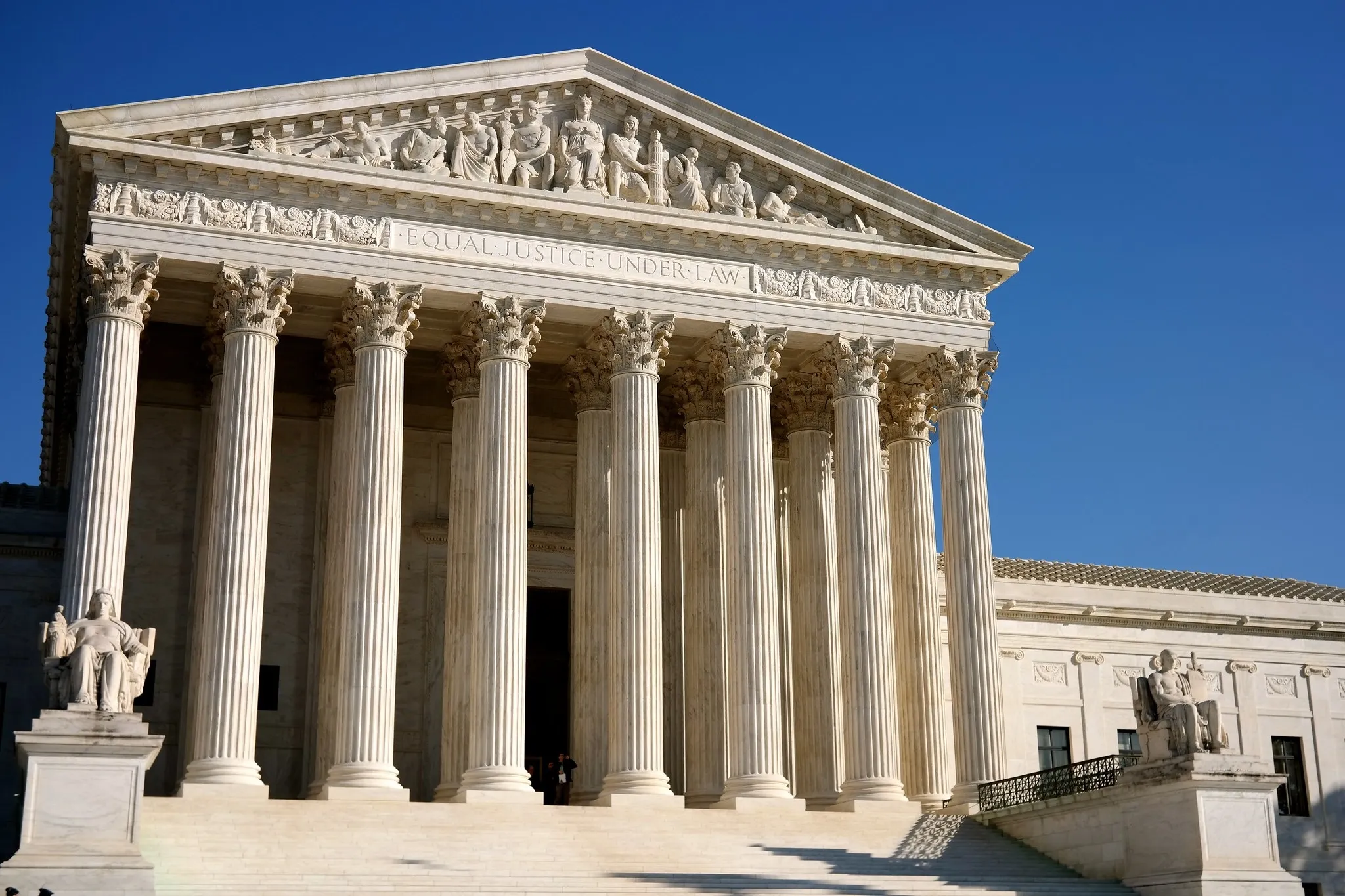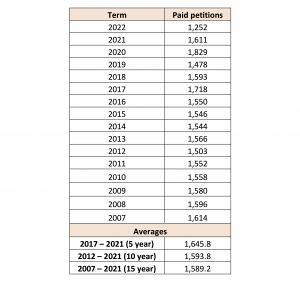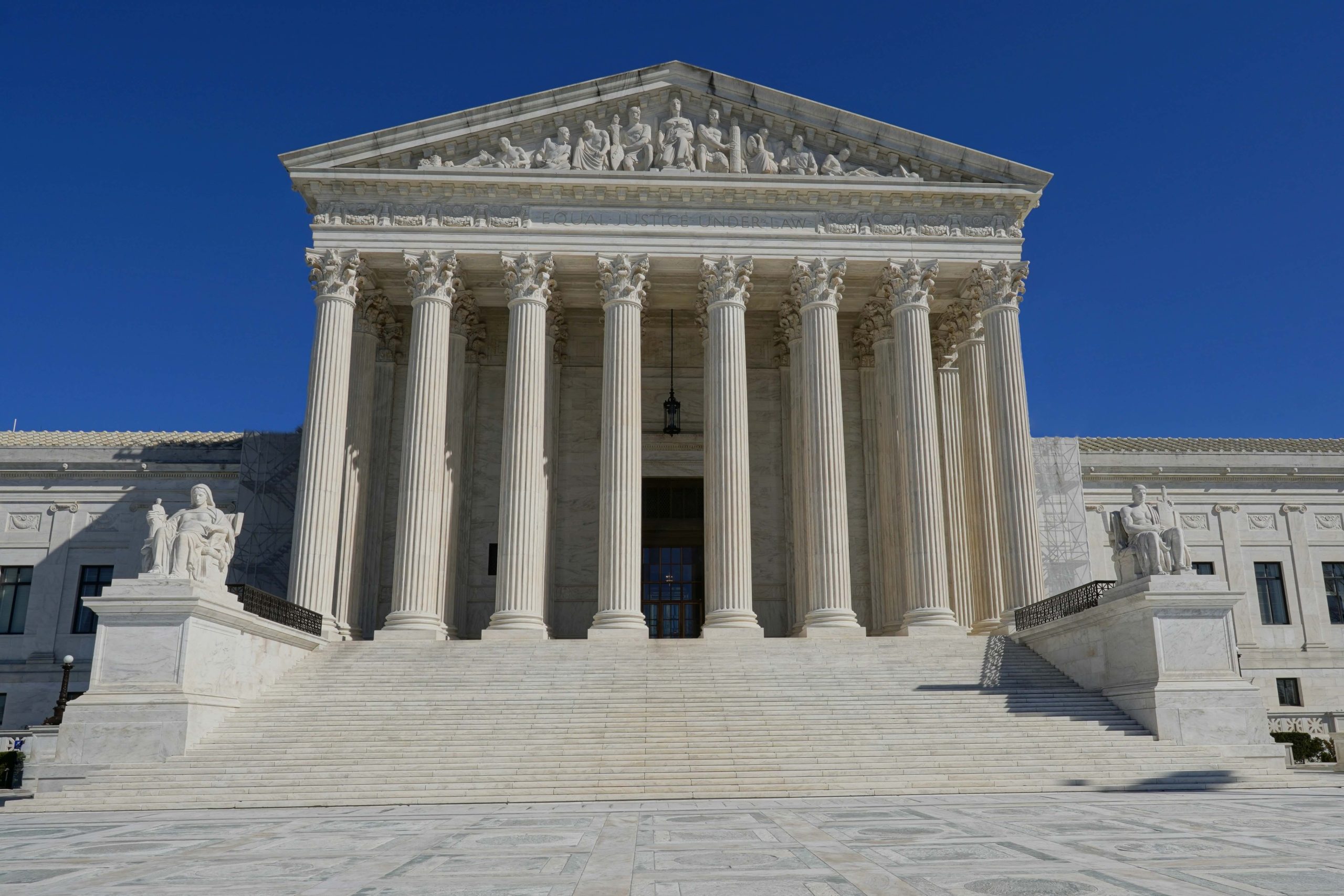Are paid petitions for certiorari in decline — again?
SCOTUS FOCUS
on Jul 13, 2023
at 3:07 pm
Each year the court receives thousands of petitions asking the justices to grant review. (Davis Staedtler via Flickr)
As Supreme Court watchers look ahead to next term, one small detail to monitor will be the number of paid petitions for certiorari filed at the court. This term’s 1,252 paid cert petitions constituted a nearly 25 percent drop from the previous five-year average, sharply limiting the number of cases from which the justices fill the merits docket.
Paid cases are those in which the petitioner can afford to pay the court’s $300 filing fee and the cost of printing to the court’s specifications (often more than $1,000). These petitions overwhelmingly make up the cases the court agrees to hear. While several thousand in forma pauperis cases are also filed each year, the court grants cert in a fraction of a percent of these cases.
The table below shows the total paid petitions in the last 16 terms:
The average number of paid petitions over the previous 15-year period was 1,589, and the paid docket was quite stable during that stretch. The variation reflected in both the period’s low (2019-20 term’s 1,478 petitions) and its high (2020-21 term’s 1,829 petitions) is likely attributable to the COVID-19 pandemic. The court issued an order in March 2020 extending the deadline for filing petitions for certiorari from 90 to 150 days. As a result, many petitions that otherwise would have been filed in the last few months of the 2019-20 term (which ended on June 30, 2020) were filed in the 2020-21 term.
This year’s decline is substantial: a 21.2 percent decrease from the previous 15-year average, and a 23.9 percent decrease from the previous five-year average. Even compared with the 2019-20 term’s 1,478 petitions, it marks a more than 15 percent decrease. Or think about it this way — paid petition 1,252 was docketed on June 30 this year but was docketed on the following dates in the previous five terms: March 16, 2022, March 10, 2021, April 28, 2020 (at the height of the pandemic), March 29, 2019, and March 8, 2018.
It is difficult to draw meaningful conclusions based on these numbers alone, and it is possible that the 2022-23 term is a one-year blip. The downturn does not seem to be the result of declining merits decisions in the federal courts of appeals. Although they too have decreased in recent years, that decrease has been slow and fairly steady from 2012 through 2023 — not the sudden drop seen this year in the Supreme Court’s paid docket.
Whatever the cause of this term’s decline, the average of 1,589 is consistent with a longer-term trend downward noted in 2007 by David Stras. “Throughout the 1980s and early 1990s, the number of paid petitions filed with the Court ranged from 1,986 petitions in 1990 to 2,417 petitions in 1981,” Stras wrote. “However, beginning in 1994, or at about the time of greatest decline in the Court’s plenary docket, the number of paid petitions began to plummet, with only 1,693 paid petitions filed during October Term 2004, a nearly 22% decrease since 1994.”







